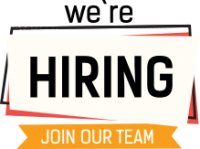
Skilled Trades: How to Build Your Career Portfolio
For years, demand for skilled trade employees has grown faster than positions have been filled. Baby Boomers retire, four-year college is promoted as the more common path to career success, and employers struggle to find qualified employees. That puts you in the driver’s seat if you happen to be looking for work in the skilled trades. But that doesn’t mean you should go into a job interview unprepared. You don’t just want any job, after all. You want a job equal to your skills. That’s why you need to start building out your career portfolio now—even if you’re still in your career training program.
Whether you’re going into HVAC repair or looking to work in computer-aided drafting and design, potential employers will look to see if you are ready and able to do the job. A strong and complete career portfolio will give them the evidence they need to hire you. But a career portfolio is much more than just your resume or a filled-out job application. It should be a living and breathing collection with many different pieces that showcase you and your skills. As you begin putting your portfolio together, make sure to include these pieces:
Create a Great Skilled Trades Resume
The foundation of any good skilled trades career portfolio is your resume. Hiring managers will want to see where you went to school, when you completed your education, the externships and jobs you’ve held, and the certifications you have. List your technical skills and any industry-specific experience you have, along with other job positions. Even unrelated jobs can speak to your professional readiness, communication, and other transferable skills that you may have sharpened along the way. Pay close attention to the words used in job postings. Many companies will use software to scan your resume for keywords they consider important. Use them. And make sure you list the skills you have that match the job posting. This gives you a better chance of making it through the initial screening process and on to interviews.
Your resume should be well written and to the point. Review it multiple times yourself, and ask friends, colleagues, and family members to read it too. It should be typo-free and professional. Even if you send a first copy by email, print another on professional resume paper and bring multiple copies with you to each job interview.
Include a Cover Letter for Skilled Trade Jobs
A cover letter serves as your introduction to a company. Don’t make the mistake of just repeating what’s on your resume. Think of the cover letter as a way to tell your own personal story. Use it as an opportunity to expand upon your schooling, training, and certifications. Tell the why and how behind the what on your resume. Like your resume, this should be well written and error-free. And it should tell the company why you’d make a great employee!
Ask for Personal and Professional Recommendations
Many companies will want to hear from people who can speak to your character and skills. Recommendations will usually fall into one of two different categories: personal or professional. Personal references are usually friends, neighbors, and group or club leaders. These folks know you better as a person and can discuss your personality, motivations, and specific experiences that could show why you’d do well in a certain job. Professional references are your teachers, supervisors, and coworkers. Potential employers may ask them specific questions about the skills on your resume and your potential to do well in a specific job. It’s important to have a list of 3-5 personal and professional references. Develop strong relationships and work hard, and these people will be happy to speak on your behalf. Be sure to ask if they would serve as your reference before listing them, and then ask for their best contact information.
Add Trade-Specific Work Samples
Some trades may want to see examples of specific job-related skills that you can perform, or some additional related skills that you possess. For plumbers, this might be the ability to weld a pipe, or HVAC repair workers could list all of the different systems they know. For electrical technicians, you could provide videos of yourself repairing different systems, or home electronic installation tutorials. Get creative. Think about everything you’ve done and what you can provide to show you’re the best person for the job.
Include Skilled Trades Licenses and Certifications
Each skilled trade has its own relevant licenses and certifications. Some of these are required to become employed, others are just preferred or can help you stand out. Either way, include any and all that you possess—recruiters and hiring managers will be glad to see them.
At Porter and Chester Institute in Connecticut and Massachusetts, we offer a variety of trade and technical programs to give you the education and training you need to get employed and succeed in a new career.
Our programs are taught by qualified, experienced instructors, and you’ll learn the skills you need to find success. Fill out the form to learn more now.






